The FIFA World Cup, often simply referred to as the World Cup, is the most prestigious international soccer tournament in the world. Held every four years, it brings together the best national teams from around the globe to compete for the coveted trophy. The tournament’s history is rich with moments of brilliance, drama, and unexpected outcomes, making it one of the most widely followed sporting events on the planet. In this article, we will delve into the history of the FIFA World Cup and highlight the top 8 greatest FIFA World Cup winners.
FIFA World Cup History

The FIFA World Cup was conceived in the early 20th century as a way to promote international soccer and foster unity among nations. The inaugural tournament was held in Uruguay in 1930, with 13 teams participating. Since then, the World Cup has grown exponentially, attracting more teams and captivating a global audience. Over the years, the tournament has witnessed some of the greatest players and teams to ever grace the sport, creating unforgettable memories and inspiring generations of soccer enthusiasts.
Top 8 Greatest FIFA World Cup Winners
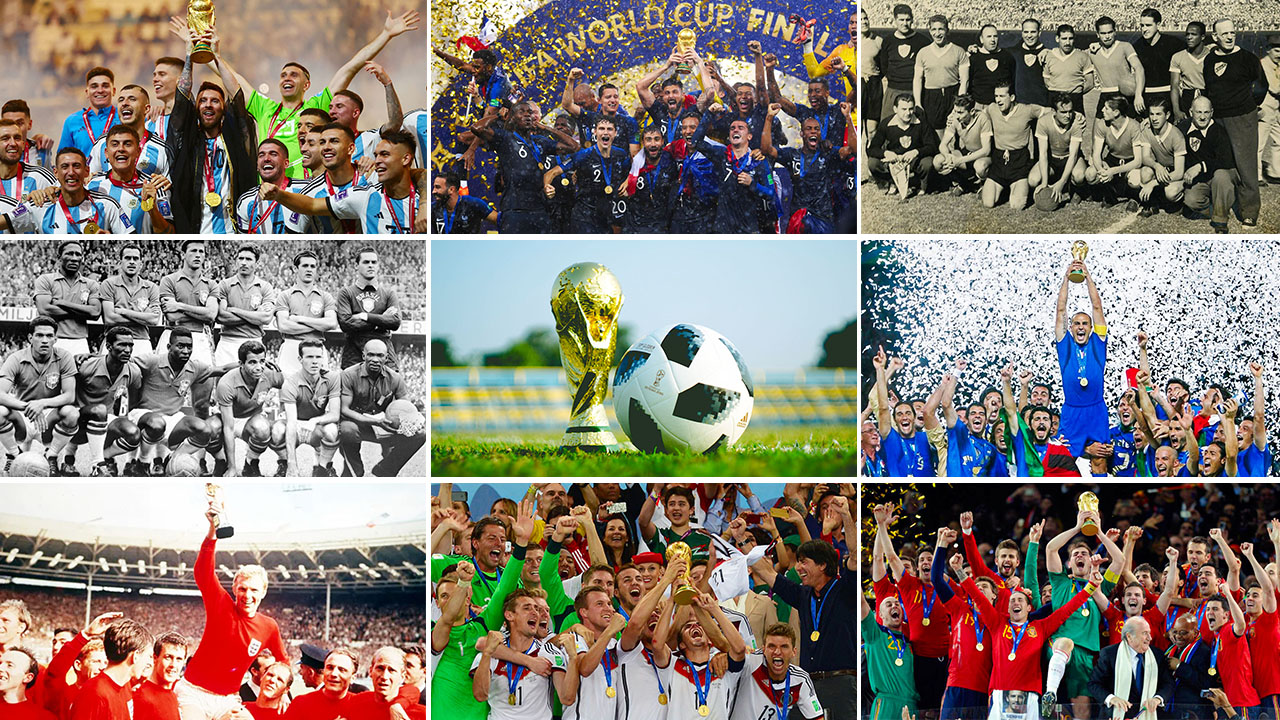
Brazil: The Indomitable Champions
- Title Count: 5
- Winning Years: 1958, 1962, 1970, 1994, 2002
- Iconic Players: Pelé, Garrincha, Ronaldo, Ronaldinho, Rivaldo
- Winning Style: Attacking firepower, technical brilliance, samba flair
- Memorable Moments: “Maracanazo” upset in 1950 final, Pelé’s triumph in 1970, Ronaldo’s comeback in 2002
- Legacy: Brazil is synonymous with football excellence, producing some of the game’s greatest legends and enchanting fans with their signature style.
Brazil holds the distinction of being the most successful team in World Cup history, having won the trophy a record five times. The Seleção, as they are affectionately known, first triumphed in 1958 with a team led by the legendary Pelé, who many consider to be the greatest soccer player of all time. Brazil also won in 1962, 1970, 1994, and 2002, showcasing their exceptional talent and samba-style of play.
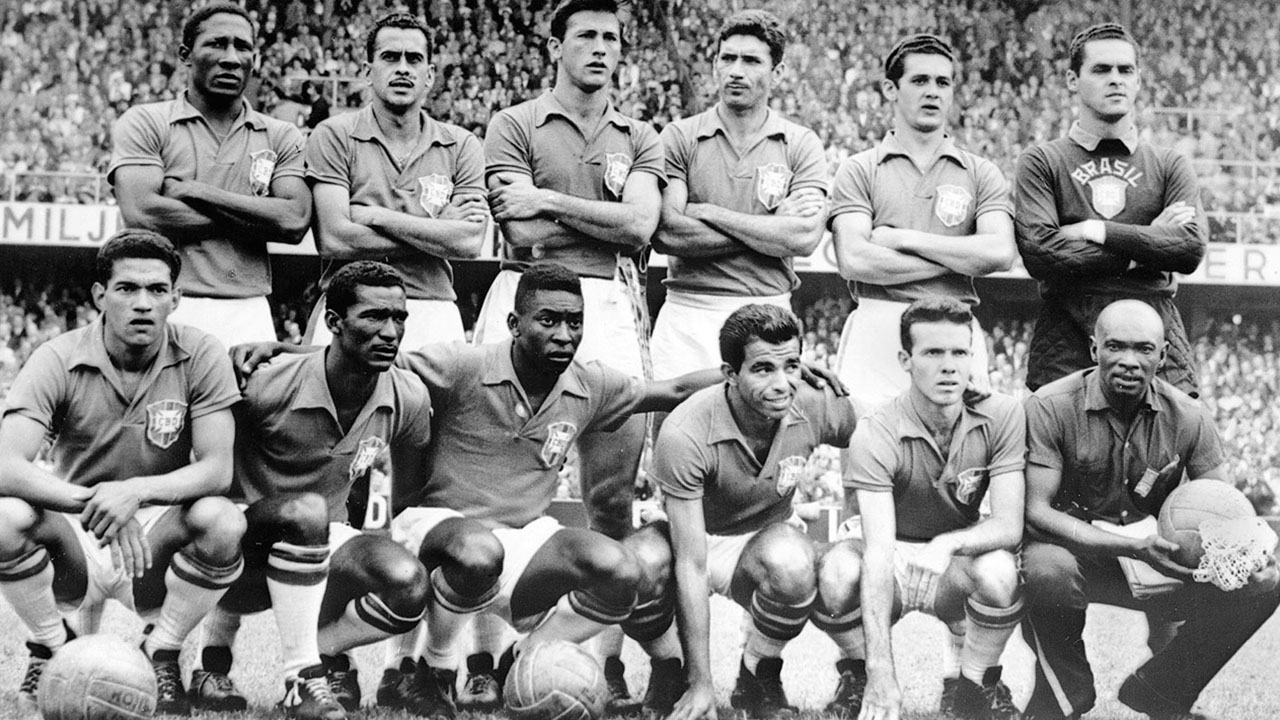
Brazil’s success can be attributed to the emergence of iconic players throughout the years. In addition to Pelé, players like Ronaldo Nazario, Ronaldinho, and Neymar have donned the famous yellow jersey and mesmerized fans with their skills and flair.
Germany: The Teutonic Powerhouse
- Title Count: 4
- Winning Years: 1954, 1974, 1990, 2014
- Iconic Players: Franz Beckenbauer, Gerd Müller, Lothar Matthäus, Jürgen Klinsmann, Miroslav Klose
- Winning Style: Efficiency, tactical discipline, physicality
- Memorable Moments: Miracle of Bern (1954), “Kaiser” Beckenbauer’s triumph (1974), Müller’s prolific goalscoring (1970), Germany’s dominant performance in 2014
- Legacy: Germany is a formidable force known for their precise passing, counter-attacking prowess, and unwavering determination.
Germany, formerly known as West Germany until 1990, is another powerhouse in the world of international soccer. The German national team has won the World Cup four times, in 1954, 1974, 1990, and 2014. The Germans are renowned for their efficiency, discipline, and tactical prowess, making them a formidable opponent for any team.
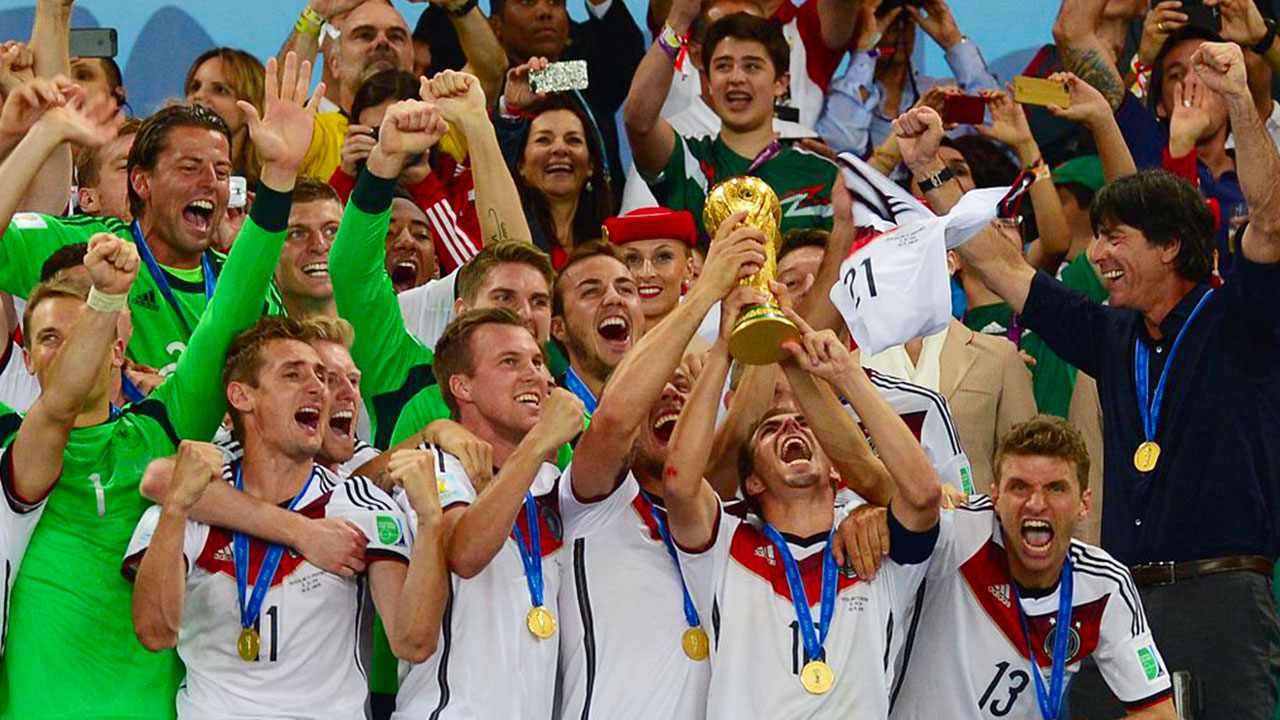
Germany’s World Cup triumphs have been marked by legendary performances from players like Franz Beckenbauer, Gerd Müller, and Miroslav Klose. Their ability to adapt to different playing styles and maintain composure in high-pressure situations has been a hallmark of their success.
Italy: The Architect of Defending
- Title Count: 4
- Winning Years: 1934, 1938, 1982, 2006
- Iconic Players: Giuseppe Meazza, Dino Zoff, Paolo Rossi, Roberto Baggio, Fabio Cannavaro
- Winning Style: Defensive solidity, tactical astuteness, legendary goalkeepers
- Memorable Moments: “Battaglia di Berna” against Switzerland (1954), Rossi’s heroics in 1982, Cannavaro’s astute leadership in 2006
- Legacy: Italy is renowned for their “catenaccio” defensive system, producing iconic defenders like Zoff and Cannavaro, and epitomizing the art of defending.
Italy, along with Germany, has also won the World Cup four times, achieving their victories in 1934, 1938, 1982, and 2006. The Italian national team is known for its defensive solidity, catenaccio tactics, and ability to grind out results. Italian teams have often been characterized by their resilience, determination, and never-say-die attitude.
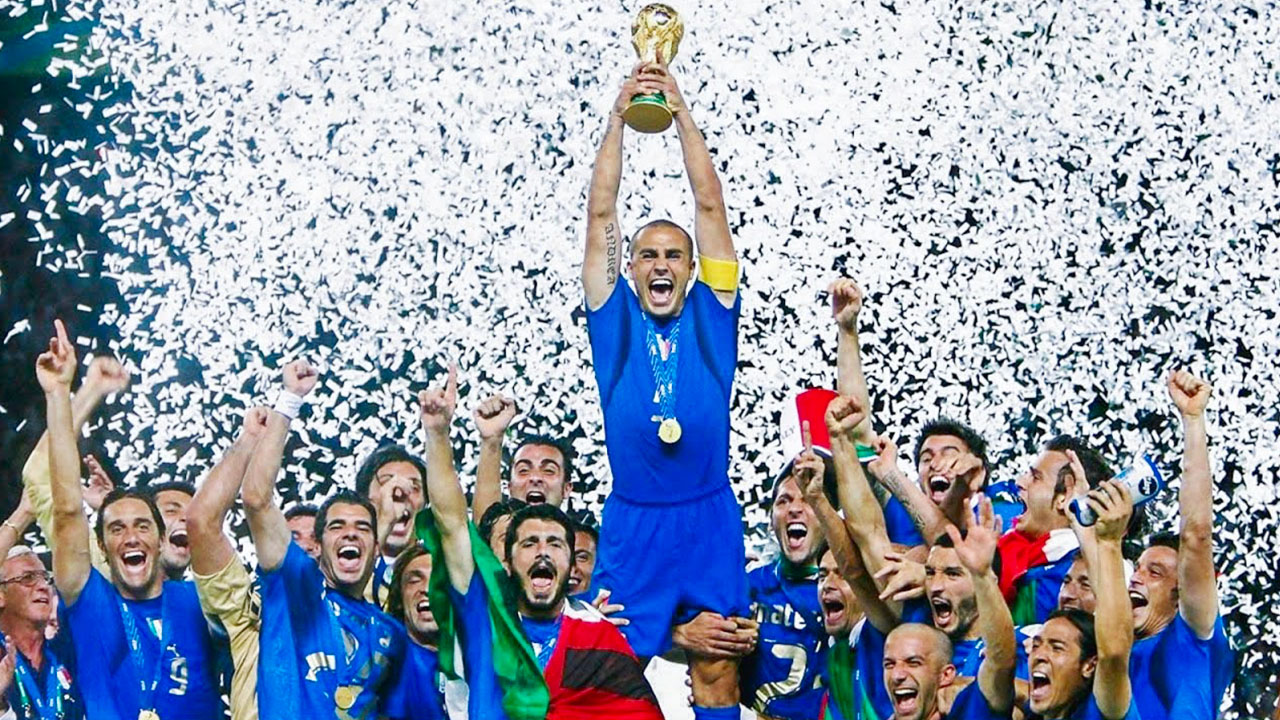
Italy’s World Cup triumphs have been punctuated by clutch moments from players like Paolo Rossi, Marco Tardelli, and Andrea Pirlo. Their ability to rise to the occasion and deliver in crucial moments has been a hallmark of their success.
Argentina: The Tango Masters
- Title Count: 3
- Winning Years: 1978, 1986, 2022
- Iconic Players: Diego Maradona, Lionel Messi, Mario Kempes, Javier Zanetti, Sergio Agüero
- Winning Style: Passionate play, creative flair, individual brilliance
- Memorable Moments: Maradona’s “Hand of God” goal (1986), Messi’s coronation (2022), Argentina’s emotional victory in 2022 penalty shootout
- Legacy: Argentina is the birthplace of some of football’s most charismatic and influential players, showcasing the flair and passion that define the sport.
Argentina, led by the iconic Diego Maradona, won the World Cup in 1978 and 1986, showcasing their flair, passion, and attacking prowess. In 2022, they added a third title to their collection, defeating France in a thrilling final. Argentina’s victories were built on the brilliance of individual players, such as Maradona and Lionel Messi, combined with a strong team ethic and tactical discipline.
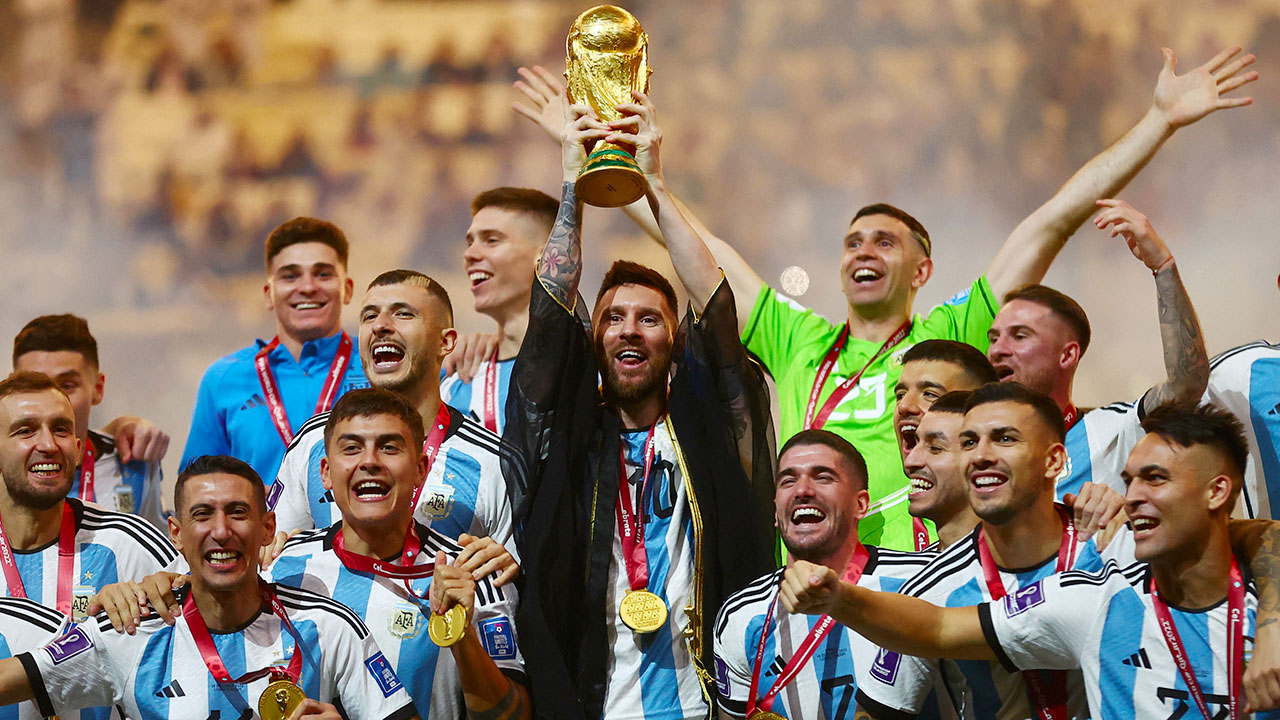
Argentina’s World Cup triumphs have been marked by unforgettable moments, such as Maradona’s “Hand of God” goal and the memorable run by Messi and his teammates in 2022, captivating audiences worldwide.
France: The Artistic Revolutionaries
- Title Count: 2
- Winning Years: 1998, 2018
- Iconic Players: Zinedine Zidane, Thierry Henry, Kylian Mbappé, Antoine Griezmann, N’Golo Kanté
- Winning Style: Technical elegance, athleticism, tactical innovation
- Memorable Moments: Zidane’s headbutt in 2006 final, Mbappé’s record-breaking performance in 2018, Didier Deschamps’ visionary leadership
- Legacy: France has emerged as a powerhouse known for their flair, diversity, and ability to adapt to different playing styles.
France has emerged as a dominant force in international soccer in recent decades. Les Bleus, as they are known, won their first World Cup title in 1998 on home soil, captivating the world with their exciting brand of attacking football. Led by stars like Zinedine Zidane and Thierry Henry, they lifted the trophy again in 2018, showcasing their depth, talent, and tactical flexibility.
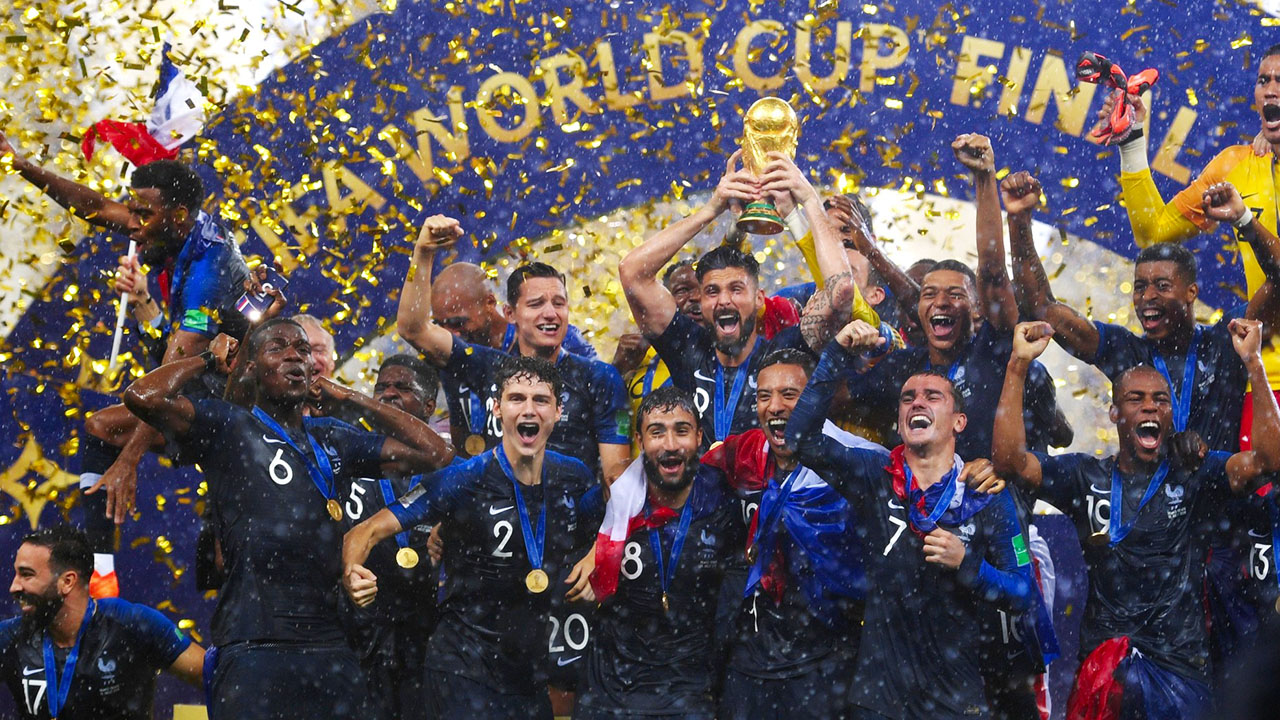
France’s success can be attributed to the emergence of influential players like Michel Platini, Zinedine Zidane, and Kylian Mbappé, who have left an indelible mark on the sport.
Uruguay: The Sky Blue Storm
- Title Count: 2
- Winning Years: 1930, 1950
- Iconic Players: José Nasazzi, Juan Schiaffino, Obdulio Varela, Luis Suárez, Edinson Cavani
- Winning Style: Physicality, defensive grit, counter-attacking threat
- Memorable Moments: Winning the inaugural World Cup in 1930, the “Maracanazo” upset over Brazil in 1950
- Legacy: Uruguay is a testament to the resilience and determination of small nations, proving that with teamwork and passion, they can overcome seemingly insurmountable odds.
Uruguay is one of the pioneers of international soccer, having won the inaugural World Cup in 1930 and securing a second title in 1950, famously known as the Maracanazo. Uruguay’s victories were built on a strong defensive foundation and a potent attack led by José Nasazzi and Juan Schiaffino. They are often credited with popularizing the 4-2-4 formation, which revolutionized soccer tactics.
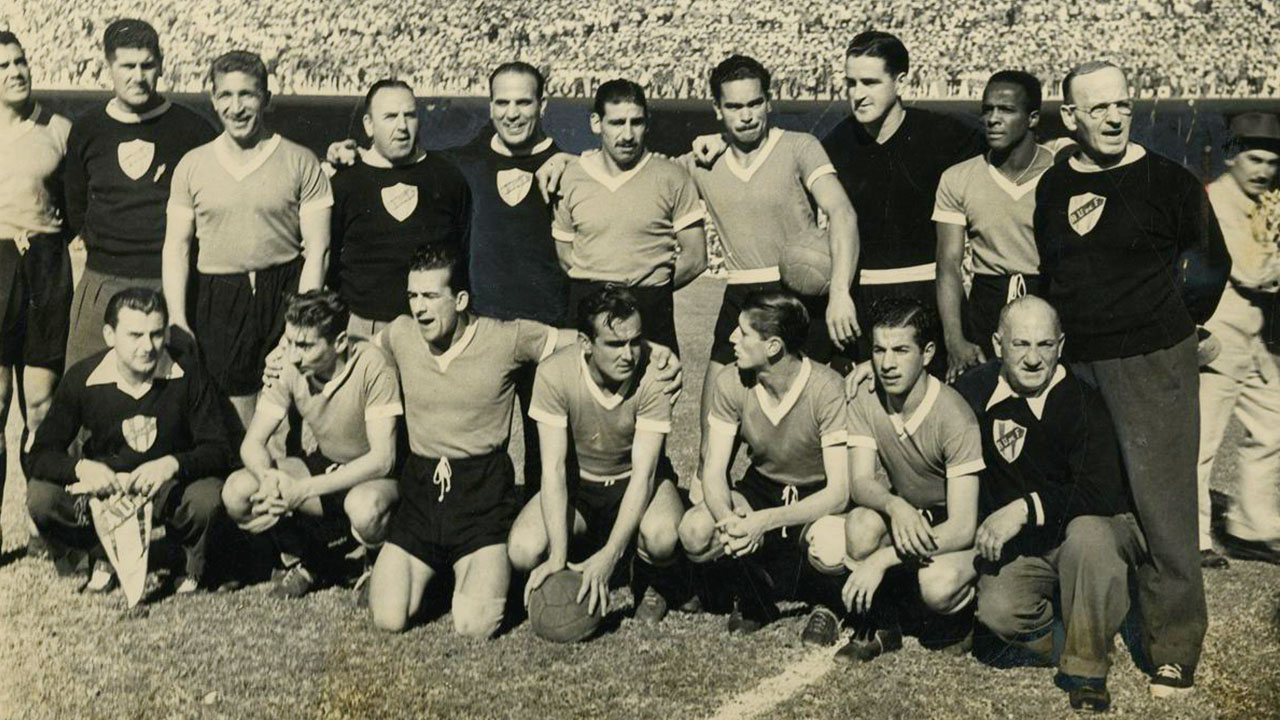
Uruguay’s World Cup triumphs were characterized by their ability to overcome the odds, with a small population and limited resources, they managed to establish themselves as a force to be reckoned with on the global stage.
England: The Home of Football
- Title Count: 1
- Winning Year: 1966
- Iconic Players: Bobby Moore, Gordon Banks, Bobby Charlton, Geoff Hurst, Wayne Rooney
- Winning Style: Tradition, wingers, set-pieces
- Memorable Moments: Bobby Moore lifting the trophy at Wembley (1966), Hurst’s infamous goal in 1966 final
- Legacy: England is the birthplace of modern football, and their triumph in 1966 remains a cherished moment in the sport’s history.
England, the birthplace of modern soccer, claimed their only World Cup title in 1966. The Three Lions, led by Bobby Charlton and Geoff Hurst, played an attacking and entertaining style of football that captured the imagination of fans worldwide. England’s victory on home soil remains one of the most iconic moments in World Cup history.
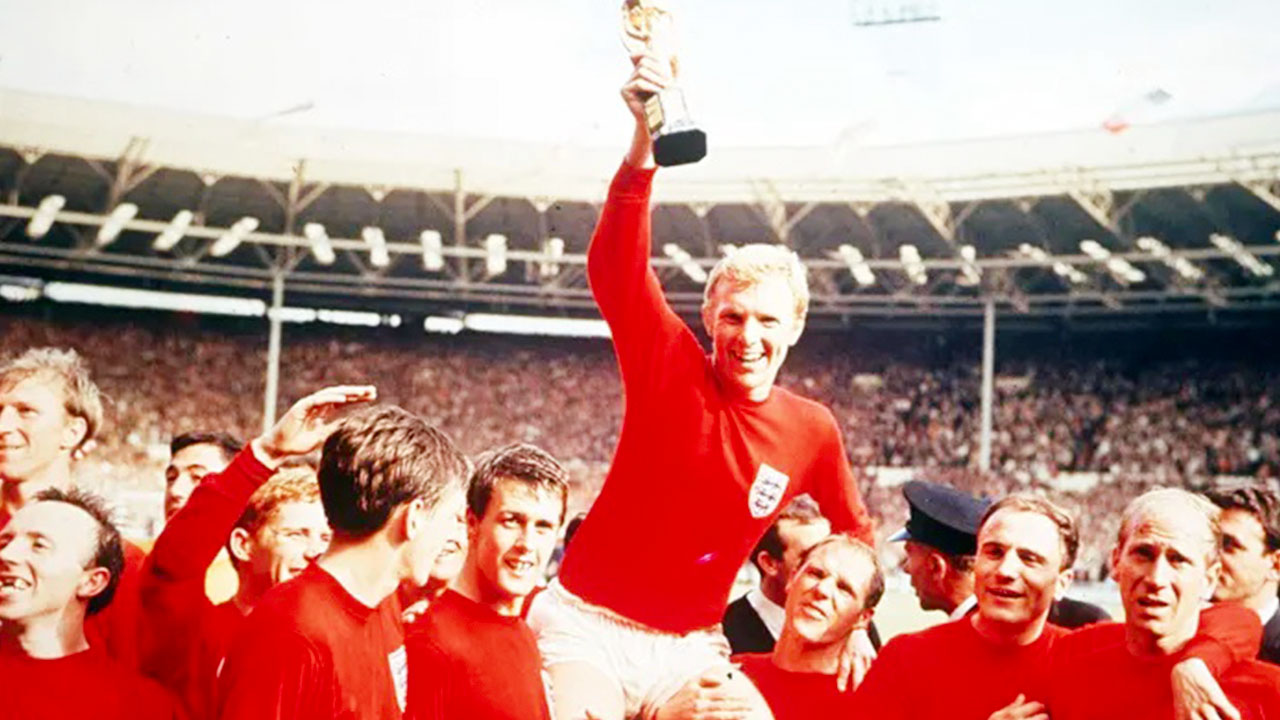
England’s 1966 triumph will forever be etched in the memories of fans, with moments like Geoff Hurst’s hat-trick in the final and Bobby Moore’s legendary captaincy, making it an unforgettable moment in soccer history.
Spain: The Tiki-Taka Dictators
- Title Count: 1
- Winning Year: 2010
- Iconic Players: Andrés Iniesta, Xavi, Sergio Ramos, Iker Casillas, David Villa
- Winning Style: Possession-based football, short passes, control of tempo
- Memorable Moments: Iniesta’s goal in the 2010 final, Spain’s dominant performance in 2010, Xavi and Iniesta’s midfield artistry
- Legacy: Spain introduced a new style of play, emphasizing possession and intricate passing, which revolutionized the game and became known as “tiki-taka.”
Spain, known for their stylish and possession-based tiki-taka style of play, won their first and only World Cup in 2010. Led by midfield maestros like Xavi and Andres Iniesta, Spain’s triumph showcased their ability to control the tempo of the game and break down even the most resilient defenses.
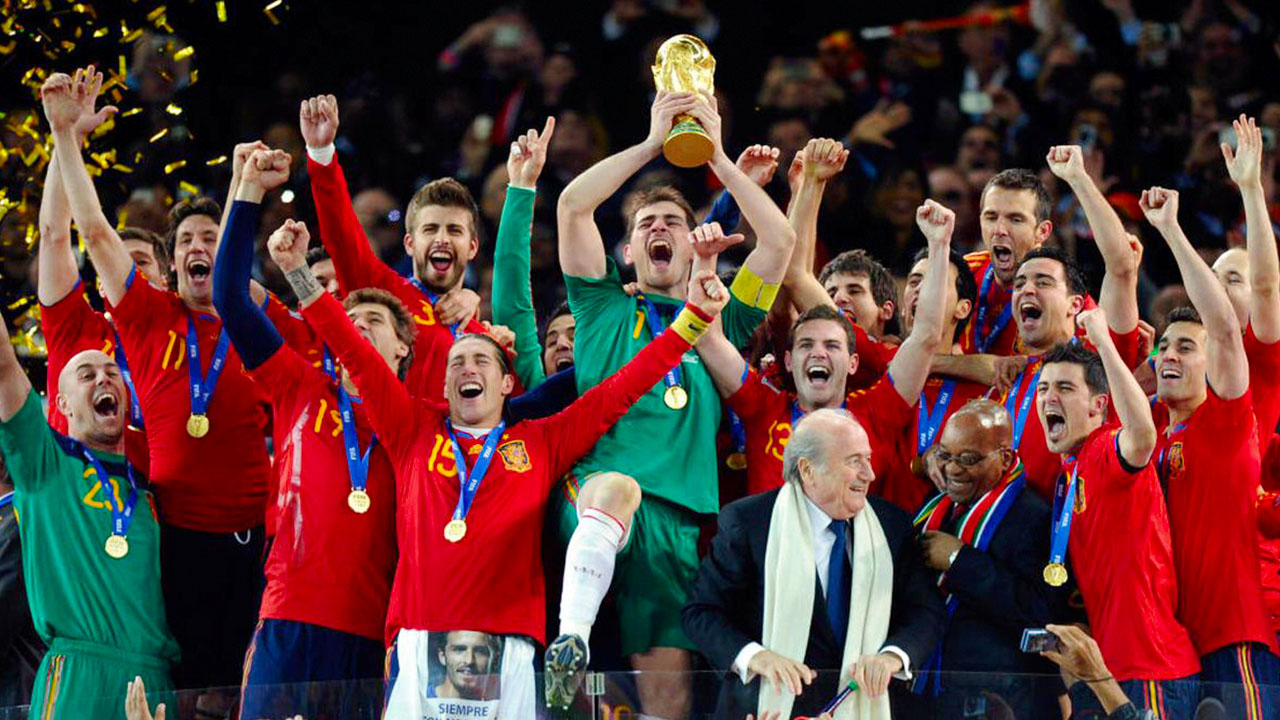
Spain’s success was built on a foundation of collective brilliance, with players like Xavi, Iniesta, and David Villa working together seamlessly to create a formidable attacking force.
FAQs
Who has won the most FIFA World Cups?
Brazil holds the record with 5 titles.
Which countries have won the FIFA World Cup more than once?
Brazil (5), Germany (4), Italy (4), Argentina (3), and Uruguay (2) have won the World Cup multiple times.
Who is the first nation to win the FIFA World Cup?
Uruguay won the inaugural World Cup in 1930.
Which country has hosted the FIFA World Cup the most times?
Mexico and Brazil have hosted the World Cup twice each.
Who will host the next FIFA World Cup?
North America (the United States, Canada, and Mexico) will co-host the 2026 FIFA World Cup.
Conclusion
The FIFA World Cup has provided countless moments of drama, excitement, and unforgettable achievements. From Brazil’s unmatched dominance to the tactical innovation of Uruguay and the individual brilliance of players like Pelé, Maradona, and Zinedine Zidane, the tournament has captured the imagination of billions of fans worldwide. As the world eagerly awaits the next edition of the FIFA World Cup in 2026, we can be sure that new legends will emerge and new moments of greatness will be etched into the annals of history.
Key Takeaways:
- Brazil is the most successful nation in World Cup history.
- European and South American teams have dominated the tournament wins.
- Defensive tactics and attacking brilliance have defined different eras of the World Cup.
- Passion for football and the desire to be crowned champions unite nations worldwide.
- The FIFA World Cup continues to captivate millions of fans with its unforgettable moments and enduring legacy.



